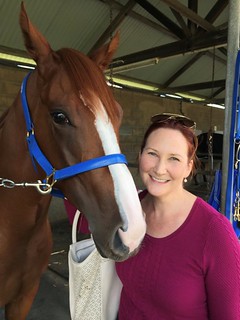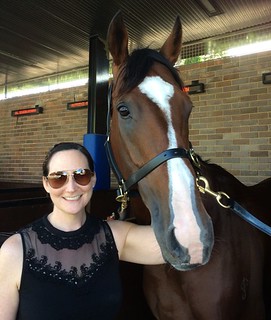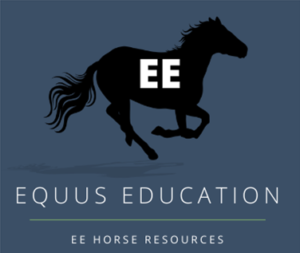Dr Natasha Hamilton has a unique science horse related role. She is the director at the Racing Australia Equine Genetics Research Centre and has kindly answered some questions about her profession.
How much of your day/week is related to horses?
This depends on how you classify relating to horses. 100% of what we do revolves around horses; however because we perform laboratory work we don’t actually get to work WITH the horse, only their samples (we extract DNA from their hair).
However, most of us in the lab have a ‘horsey’ background. My second post-doctoral job (after graduating with my PhD) was based on studying sheep genetics, but my boss used to tell me they were just small woolly horses to try and keep my attention!

What is it exactly that you do?
I oversee the day to day running. This is as well as long term planning and development for the Racing Australia Equine Genetics Research Centre. Our core business is to perform the DNA based parentage verification for the Thoroughbred racing and breeding industry. We also perform parentage verification for many other horse studbooks in Australia. This is as well as diagnostic DNA tests for genetic diseases and traits of interest (such as coat colours and patterns). While we are just starting up we are focusing on developing the procedures to carry out these tests with the highest possible level of accuracy and as efficiently as possible.
Once we have the procedures fully developed and tested, we will also perform genetics research. I am interested in anything to do with genetics and horses. However, I am particularly focused on the impact genetics has on racehorse soundness and durability, as well as any other factor that might impact welfare in racehorses. Our staff also have different research interests which we would like them to develop as they work here.
In this field of work, is it possible to be a full time professional and earning a liveable income?
This job is more of a laboratory position that happens to be in horses, so it is certainly possible to make a living doing this job; but positions like this are very difficult to come by. I feel incredibly lucky to have been given this opportunity by Racing Australia.
What are the general steps taken to be employed in such a role?
I think the most important step is to gain relevant scientific qualifications. My first degree was a Bachelor of Science in Agriculture, then I completed a PhD in horse genetics. There was very little practical horse work during my studies. But I still found this fascinating because it was focused on horses.
Luckily, I was also able to get involved with some teaching of Veterinary Students in horse handling. So I was still able to get my horse fix doing that. My PhD involved doing lots of laboratory work. So I could develop the practical skills I needed for my current position; in addition to the research side of things – learning how to find and critically evaluate information and develop a research idea into a peer-reviewed paper. Genetics research has come a long way in a short time, so in the future less laboratory skills are required. And instead a better understanding of how to analyse large amounts of biological data, such as whole genome sequence is more important.

Favourite horse memory?
So how do you pick just one??!! I have also worked at the racetrack as a swab collection official for over 20 years so I get to know racehorses a little better than most. I have been lucky enough to see such horses as Octagonal, Tie the Knot, Lonhro & Sunline, as well as Black Caviar & now Winx.
Because I am a huge horse racing fan my favourite horse memories are racing related. And often they relate to the personalities of the horse in question. About 15 years ago I was a huge fan of a horse called Clangalang because he was just the sweetest colt you could ever come across. Him winning the Australian Derby was amazing. When Red Cadeaux visited Sydney, I got to meet him and feed him carrots – one of my favourite memories.
I also just purchased a very small share in a super cute little filly last year. Her winning her first race as an early 2 year old late last year is one of my best horse experiences yet. But I hope there are more to come with her!
Future goals?
To own lots more fast racehorses 😊. Professionally, I would like to contribute to our understanding of how genetics influences a horse’s soundness and career length. I would also like to do more to promote the Thoroughbred as an all-round great breed of horse. Thoroughbreds are kind, generous, brave, athletic, tolerant and generally well exposed to many of the day to day husbandry procedures that other horses get upset about (e.g. getting their teeth & feet done, floating).
At the ripe old age of 42, I am currently learning to ride on off-the-track TBs. And they will do everything they can to stop me from falling off (and I am quite bad!). I understand that while some TBs do have personalities that make them unsuitable for beginner riders like myself, there are very few that can’t turn their hand to anything with the right training. It is the rider that limits these amazing animals, not the horse.
Best thing about your sport/profession?
Everyone is always talking about horses. Whether it be the performance of their own racehorse at some country track, or the latest Winx demolition job. Also, our lab is based in Scone NSW – horse country. It’s an absolutely beautiful place to go and work, although some rain certainly wouldn’t go astray.

Leave a Reply